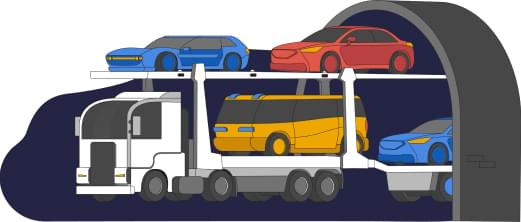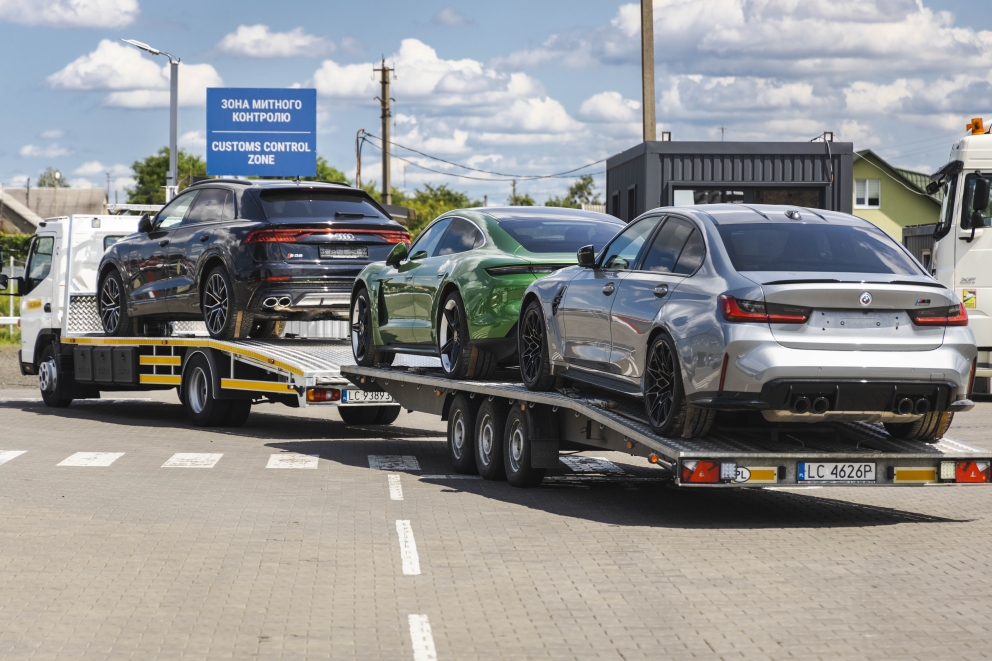How much does it cost to clear a car in Ukraine?
When you decide to bring a car from abroad, it is important to know in advance how much you will have to pay for its customs clearance. "Customs clearance" refers to the process of customs clearance of a car, i.e. document preparation, calculation and payment of taxes and fees. The main payments include customs duty, excise duty and value added tax (VAT). In this article, we will look at how to independently calculate the cost of these payments in 2024 in order to prepare for the customs clearance process.
How to calculate the duty?
Duty is the first tax that is assessed during the customs clearance process. Its amount is determined as a percentage of the estimated value of the car, which is specified in the customs declaration and is confirmed by documents (invoice, "purchase", expert opinion). The standard duty rate for passenger cars is 10%. However, there are some exceptions where the duty may be lower or even zero.
For example, if a car was imported from the European Union and certified with a EUR.1 document, then the duty on such cars may be 0%. Similarly, there is also a zero duty rate for electric vehicles. Some other countries also have preferential conditions, so it is recommended to consult with specialists before importing to find out if you can take advantage of similar benefits. For example, West Auto Hub specialists can provide more detailed information on this issue at 0 (800) 209-124.
So, the first step in calculating the cost of customs clearance is determining the appraised value of the car and applying the appropriate duty rate.
How to determine the amount of excise duty?
The second main payment is the excise duty. This tax is determined by a special formula that takes into account the age of the car, volume and type of engine. The formula looks like this:
Excise duty = (base rate) × (age factor) × (engine factor)
The basic rate depends on the type of fuel and the volume of the engine. For gasoline cars with an engine volume of up to 3 liters, the basic rate is 50 euros, for engines over 3 liters — 100 euros. For diesel cars with an engine up to 3.5 liters - 75 euros, and for volumes over 3.5 liters - 150 euros.
The age factor is determined by the total age of the car in years, but cannot be less than 1 or greater than 15. This means that even if the car is older than 15 years, the age factor will still be 15.
The engine ratio is calculated by dividing the engine volume (in cubic centimeters) by 1000.
For example, if you import a gasoline car with an engine volume of 2 liters and an age of 5 years, the excise duty will be:
Excise duty = €50 × 5 × 2 = €500
For electric cars, the excise tax formula is simpler: 1 euro per 1 kWh of battery capacity.

How to calculate value added tax (VAT)?
The third main payment when clearing a car is value added tax (VAT), which is 20%. It is calculated on the sum of the estimated value of the car, customs duty and excise tax. It should be noted that the delivery of the car may also be included in the estimated value for VAT purposes.
There is a discount for electric cars - no VAT is charged. There are also exemptions for other categories of vehicles, such as new gas-powered tractor units, vintage cars and electric trucks.
Example of VAT calculation:
If the estimated value of the car is 10,000 euros, the customs duty is 1,000 euros, and the excise tax is 500 euros, then VAT is calculated on the amount: VAT = (10,000 + 1,000 + 500) × 20% = 2,300 euros.
Additional costs
In addition to the main payments, there are additional costs associated with car customs clearance. These include:
- The first state registration of a car. After customs clearance, the car must go through the registration procedure in Ukraine. A corresponding fee is also charged for this.
- Examination and certification. The imported car must meet Ukrainian standards. For this, it may be necessary to pass a technical examination and obtain certificates of conformity.
- Other expenses during the trip. These are expenses for car delivery, living abroad, fuel, insurance, possible repairs and other small expenses.
Should I do the customs clearance myself?
Car customs clearance is a complex process that requires knowledge of customs legislation, accurate filling of documents and consideration of all nuances. Even a small mistake can lead to fines and delays. Therefore, many people choose specialized companies that are engaged in "tuning" turnkey cars.
West Auto Hub offers customs clearance, delivery and car registration services, helping customers avoid all the complexities and risks of this process. The company's specialists will not only help calculate the cost of payments, but also advise on the choice of a car abroad, its inspection and legal purity. This allows you to be sure that all documents will be prepared correctly, and the car will meet your expectations.
To get professional advice and learn more about the customs clearance process, contact West Auto Hub specialists by phone at 0 (800) 209-124.
